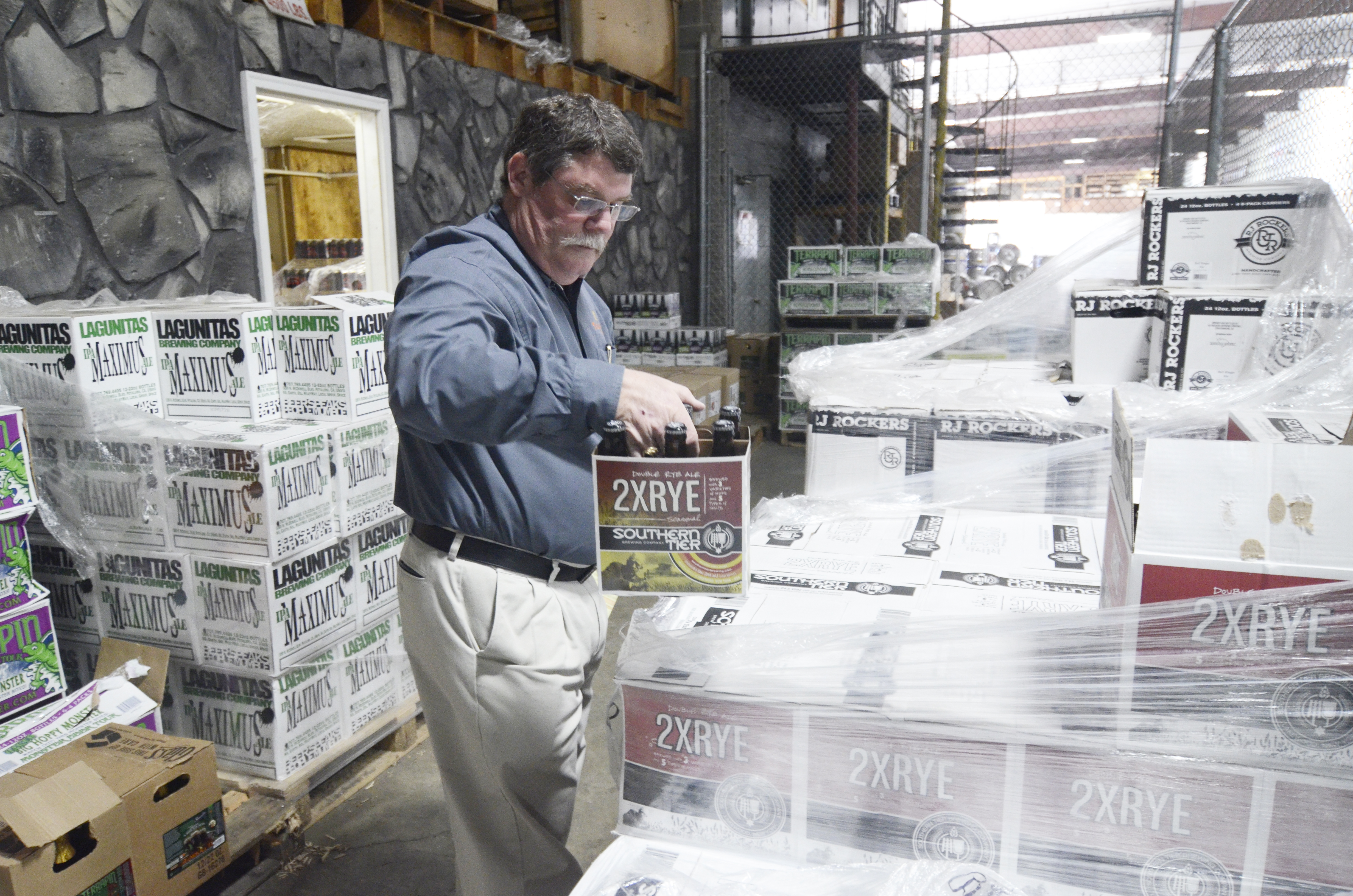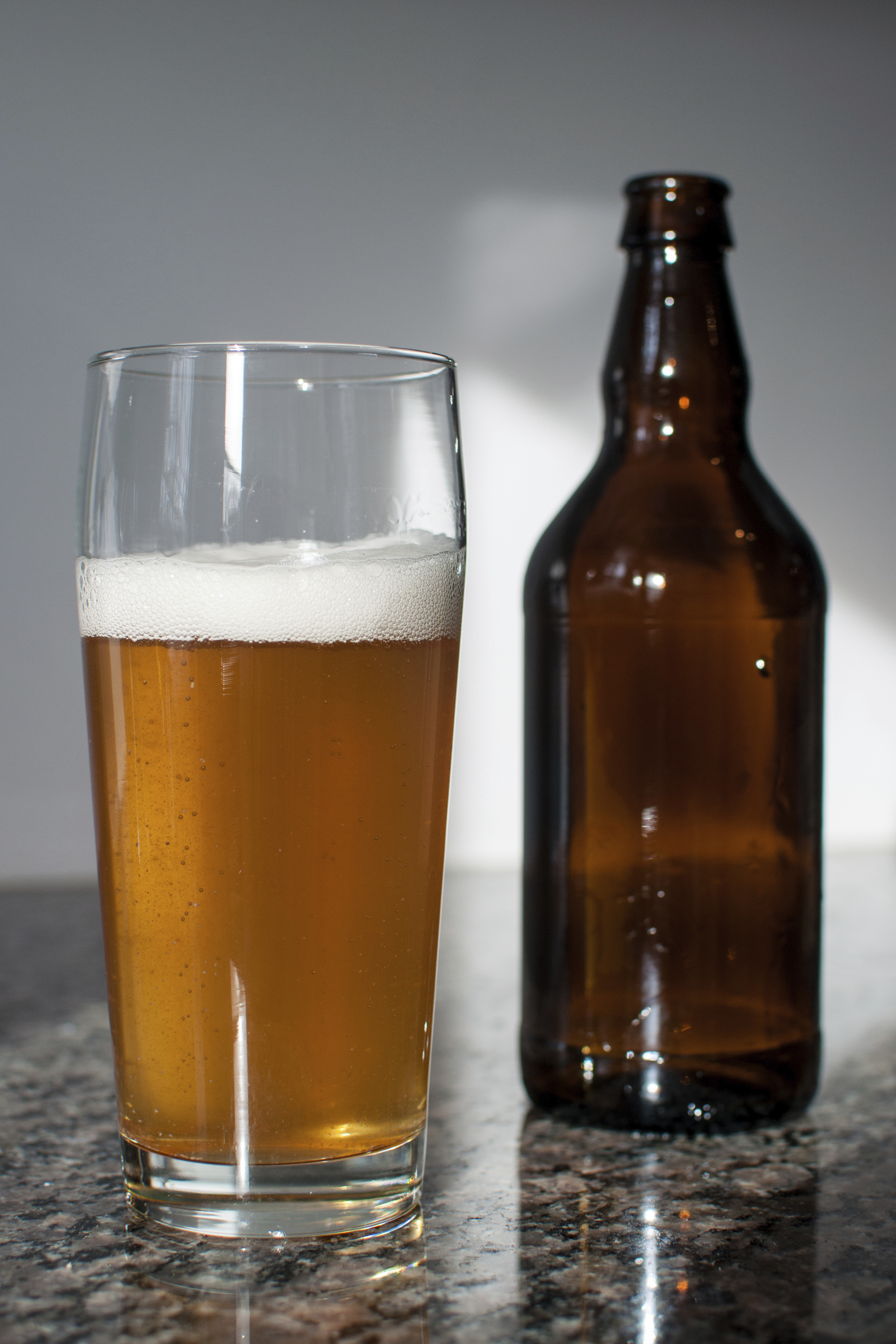TOP 5 LOCAL BREWERS• Big River Grille, 222 Broad St.• Chattanooga Brewing Co., 109 Frazier Ave.• McHale's Brewhouse, 724 Ashland Terrace.• Moccasin Bend Brewing Co., 4015 Tennessee Ave.• Terminal Brew House, No. 6 14th St.
DID YOU KNOW• Craft brewers provide an estimated 108,440 jobs in the U.S., including serving staff in brewpubs.• Growth of the craft brewing industry in 2012 was 15 percent by volume and 17 percent by dollars compared to 2011 (13 percent by volume and 15 percent by dollars).• Craft brewers sold an estimated 13,235,917 barrels of beer in 2012, up from 11,467,337 in 2011.• 2,403 total breweries operated for some or all of 2012, the highest total since the 1880s.Source: brewersassociation.org
Pull out your steins, Chattanoogans. Craft beer is on the rise in the Scenic City.
More than 100 new packages of craft beer have hit the Chattanooga market since January, said Bob Monroe, general sales manager at long-time local alcohol peddler Carter Distributing.
"It's become such a huge part of our business," he said. "And our big competitors in town are doing the same thing. It's the only segment of the beer industry that's growing."
The popularity of craft beer doubled nationally between 2005 and 2012, according to the Brewers Association. The craft beer industry sold 13.2 million barrels of craft beer in 2012, compared to just 6.2 million in 2005.
In Tennessee, more than 54,000 barrels of craft beer were sold in 2012 -- much higher than the 33,000 barrels sold in 2011. And Chattanooga is right in the middle of that growth, local beer experts say.
Joe Winland opened a growler shop in July to cater to what he hoped was a growing trend of local craft beer lovers. And so far, he hasn't been disappointed.
"The biggest thing that I see that speaks to the growth in Chattanooga is that almost without fail, the best nights and the biggest nights we have in our store is when we debut and introduce something brand new," he said. "Every time we roll out a new beer or a new brewery pops up, we go through half-barrels of those beers the fastest."
The demand in Chattanooga is drawing craft beer brewers from other markets, even from Asheville, N.C., the traditional craft beer capitol of the Southeast, and from major cities across the Eastern United States.
Rivertown Brewing Company, which is headquartered in Cincinnati, Ohio, started distributing in Chattanooga about five months ago, CEO Jason Roeper said.
"Chattanooga hit the radar about a year ago," he said. "We were getting a lot of requests from people who live in the Chattanooga market. They'd come to our festivals in Nashville where we were selling beer."
He said he's seeing rapid growth in markets that traditionally haven't had a large craft beer scene.
"Some who haven't had good craft beer and are just getting their hands on it are exploding," he said. "And I think Chattanooga is the same way. We're hoping it's not just a fluke, but that it's a continual trend and we can continue to grow the market."
Between new breweries and growing demand, Chattanooga is starting to be a recognized name in craft beer circles, Monroe said. He hopes Chattanooga can become the next Asheville -- a place famous for its craft beer.
Tony Giannasi, craft brand manager at Carter, said Chattanooga still has a ways to go before hitting that mark.
"We're not going to be Asheville," he said. "Asheville is Asheville and that's great. But we're trending in that direction."
Craft beer appeals to both retailers and customers, Giannasi said. On the consumer side, the beer is high-quality, often with a higher alcohol content but focused on taste and experience. Craft beers are made in small batches and brewers are constantly rolling out new products and flavors that keep consumers interested.
On the retailer side, craft beer allows a restaurant or bar to sell less beer and make more money, Giannasi said.
"You're going to sell less of it," he said. "But it's three times more expensive than regular beer. So you can sell less, and make more. It's not there yet. But any accountant sitting there and doing the numbers, running an extrapolation curve, will say, 'Oh man, you might be selling more Miller Lite or whatever, but we're making the same amount of money on craft beer as macro beer."
At Carter, craft beer accounted for about 3 percent of all sales 10 years ago, Monroe estimated. And that's at least quadrupled today.
"If we can get to the 20 to 25 percent range, that's a great thing for everyone," he said. "Everyone involved makes more money on it and it's a better beer."
Contact staff writer Shelly Bradbury at 423-757-6525 or sbradbury@timesfreepress.com.


